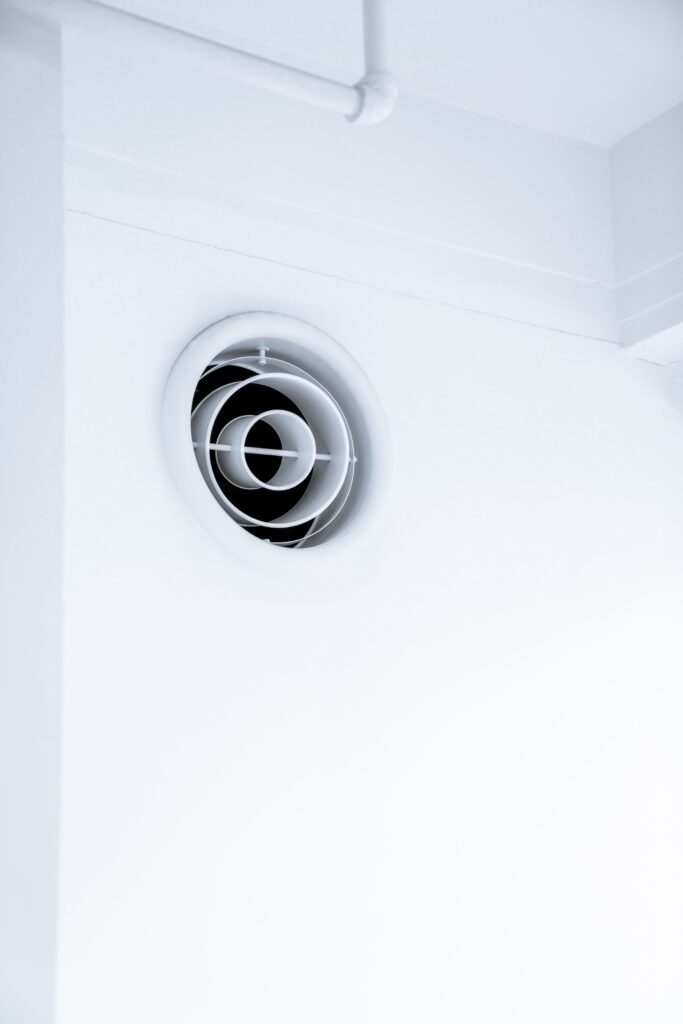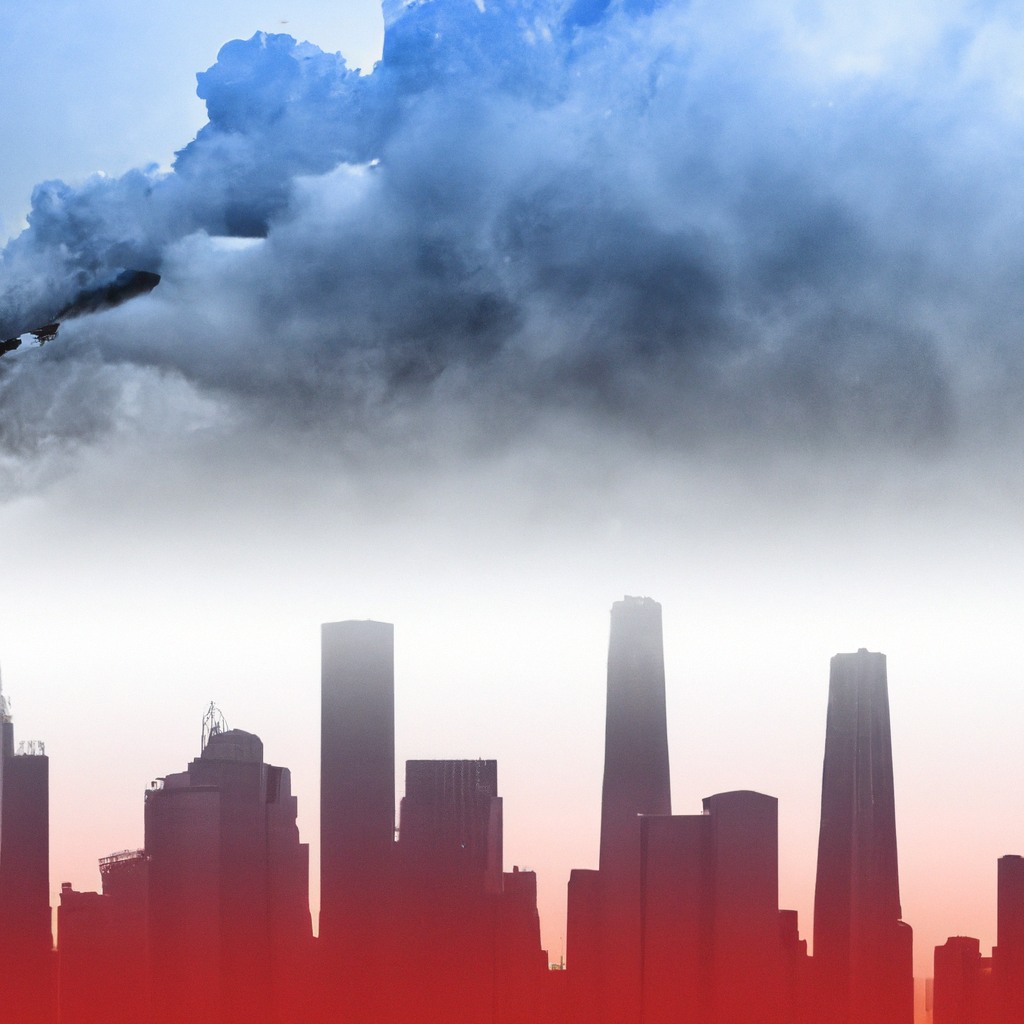Why Is Clean Air Essential For Human Health: Introduction
Why Is Clean Air Essential For Human Health: Setting the Stage
Why is clean air essential for human health? Imagine a world where the air you breathe is so pure, so clean, that with every inhale, you could feel an instant surge of energy revitalizing your body. This may sound like an idyllic vision, but it underscores the undeniable truth that clean air is not just a comforting idea—it’s a vital component of human well-being.
The Risks of Polluted Air
Living in an environment with polluted air isn’t just an inconvenience; it’s a serious risk to your health. From respiratory problems to cardiovascular diseases, air pollution poses numerous threats to our physical well-being, impairing our ability to lead active and healthy lives.
Navigating Through This Article
In this article, we aim to delve deeper into the impact of air quality on human health. We will explore scientific evidence, discuss real-world case studies, and offer practical tips for safeguarding yourself and your loved ones.
Your Guide to Understanding Air Quality
So sit back, take a deep breath, and get ready to embark on a journey that will help you understand why clean air is essential for human health. Whether you’re an advocate for environmental policies or someone who’s just curious about how air quality impacts your life, this article will provide you with comprehensive insights into this crucial subject.
Why Is Clean Air Essential For Human Health: Overview
Clean air refers to the quality of air that is free from pollutants and harmful substances. It is essential for maintaining good health and well-being. The significance of clean air for human health cannot be overstated, as it directly impacts various body systems and functions. When we breathe in clean air, our bodies are able to function optimally and protect us from the detrimental effects of pollution.
Respiratory Health
Asthma and allergies
Clean air plays a crucial role in respiratory health, especially for individuals with asthma and allergies. Polluted air can trigger asthma attacks and worsen respiratory symptoms, causing difficulty in breathing, coughing, wheezing, and chest tightness. By breathing in clean air, you can minimize the risk of such respiratory conditions and maintain optimal lung function.
Chronic obstructive pulmonary disease (COPD)
Clean air is particularly important for individuals suffering from chronic obstructive pulmonary disease (COPD). COPD is a progressive lung disease that causes airflow limitation and breathing difficulties. Exposure to polluted air can exacerbate COPD symptoms and lead to flare-ups, reducing the quality of life for affected individuals. Breathing clean air can help manage COPD and prevent further deterioration of lung function.
Lung cancer
Polluted air contains carcinogenic substances that can increase the risk of developing lung cancer. Fine particulate matter and hazardous air pollutants, such as asbestos and benzene, can infiltrate the lungs and initiate cancerous cell growth. Clean air reduces the exposure to these harmful substances, decreasing the likelihood of developing lung cancer and promoting better respiratory health.

Check Out Our Top Eco Friendly Product Picks On Amazon Here
Cardiovascular Health
Heart disease and stroke
Air pollution is associated with an increased risk of heart disease and stroke. The fine particulate matter present in polluted air can enter the bloodstream, leading to inflammation and oxidative stress. These factors contribute to the development of atherosclerosis, where plaque builds up in the arteries, narrowing them and reducing blood flow. Breathing clean air helps protect cardiovascular health and decreases the likelihood of heart disease and stroke.
Hypertension (high blood pressure)
Long-term exposure to air pollution has been linked to hypertension, or high blood pressure. Polluted air can disrupt the balance of hormones and increase oxidative stress, which can cause blood vessels to constrict and raise blood pressure levels. Clean air promotes healthy blood pressure regulation, reducing the risk of hypertension and its associated complications.
Impacts on blood vessels
Air pollution can adversely affect blood vessels, leading to endothelial dysfunction and impaired vasodilation. This can hinder the delivery of oxygen and nutrients to various tissues and organs, negatively impacting overall cardiovascular health. Breathing in clean air helps maintain the integrity and functionality of blood vessels, supporting proper blood flow and minimizing the risk of cardiovascular diseases.
Mental Health
Impact of air pollution on mental health
Clean air is not only beneficial for physical health but also plays a critical role in mental well-being. Studies have shown that exposure to air pollution can have detrimental effects on mental health, leading to increased anxiety, irritability, and mood disorders. Breathing in clean air can contribute to improved mental health outcomes and promote overall emotional well-being.
Link between air pollution and cognitive decline
Air pollution has been associated with cognitive decline and neurodegenerative diseases. Fine particulate matter and toxic pollutants can enter the brain through the respiratory system, causing oxidative stress, neuroinflammation, and damage to brain cells. By reducing exposure to air pollution, you can help protect against cognitive decline and maintain optimal brain function.
Depression and anxiety
Poor air quality has been linked to higher rates of depression and anxiety. The presence of pollutants in the air can induce chronic physiological stress and affect neurotransmitter balance, contributing to the development of mood disorders. Breathing clean air promotes a healthier mental state, reducing the risk of depression and anxiety.

Children’s Health
Effects of air pollution on fetal development
Pregnant women exposed to air pollution may experience adverse effects on their unborn children. Polluted air can increase the risk of preterm birth, low birth weight, and developmental issues. Additionally, exposure to air pollution during pregnancy has been linked to an increased likelihood of childhood respiratory conditions and long-term health implications. Ensuring clean air for expectant mothers is essential for the healthy development of their children.
Childhood respiratory health
Children are particularly vulnerable to the effects of air pollution on respiratory health. Their developing lungs and immune systems make them more susceptible to respiratory infections, asthma, and allergies. Breathing in clean air helps protect children from these health risks, ensuring optimal respiratory function and reducing the occurrence of respiratory illnesses.
Impact on cognitive function and academic performance
Air pollution can impact children’s cognitive function and overall academic performance. Studies have shown links between exposure to air pollutants and decreased attention span, memory impairment, and reduced cognitive abilities. Breathing clean air supports healthy brain development and ensures children have the best chance of reaching their full academic potential.
Why Is Clean Air Essential For Human Health: Immune System
Increased susceptibility to infections
Exposure to air pollution can suppress the immune system, making individuals more susceptible to infections. Airborne pollutants can impair the function of immune cells, reducing their ability to fight off invading pathogens. By breathing clean air, you can strengthen your immune system and enhance your body’s ability to defend against infections.
Impact on allergic reactions
Air pollution can exacerbate allergic reactions by triggering inflammation and irritating the respiratory system. Allergens in the air, such as pollen and mold spores, can combine with pollutants and intensify the allergic response. Breathing clean air helps minimize the risk of allergic reactions, providing relief for individuals with allergies.
Inflammation and autoimmune diseases
Air pollution has been associated with increased inflammation in the body, which can contribute to the development of autoimmune diseases. Chronic exposure to pollutants can disrupt the immune system’s balance, leading to the production of inflammatory markers and activation of autoimmune responses. By reducing exposure to air pollution, you can help reduce the risk of developing autoimmune diseases and promote a healthier immune system.

Why Is Clean Air Essential For Human Health: Skin Health
Skin irritation and allergies
Air pollution can have adverse effects on skin health, causing irritation and allergies. Pollutants in the air can deposit on the skin’s surface and penetrate its layers, leading to inflammation, dryness, and itching. Breathing in clean air helps reduce the exposure to these irritants, promoting healthier and more resilient skin.
Premature aging of the skin
Fine particulate matter and pollutants in the air can contribute to premature aging of the skin. These substances can induce oxidative stress, damage collagen and elastin fibers, and accelerate the formation of wrinkles and fine lines. By breathing clean air, you can minimize the impact of these pollutants and maintain youthful and healthy-looking skin.
Skin cancer
Certain air pollutants, such as polycyclic aromatic hydrocarbons (PAHs), have been linked to an increased risk of skin cancer. These substances can adhere to the skin and, with long-term exposure, lead to DNA damage and the development of skin cancer cells. Breathing in clean air can help reduce exposure to these carcinogens, guarding against the risk of skin cancer.
Why Is Clean Air Essential For Human Health: Long-term Effects
Cumulative effects of exposure to air pollution
Repeated and prolonged exposure to air pollution can have cumulative effects on human health. The body’s ability to detoxify and neutralize harmful substances may become overwhelmed over time, leading to a buildup of toxins and an increased risk of chronic health conditions. Breathing clean air helps minimize the cumulative effects of air pollution, reducing the likelihood of long-term health problems.
Life expectancy and quality of life
Exposure to air pollution has been linked to reduced life expectancy and lowered quality of life. The health risks associated with polluted air can lead to a multitude of chronic diseases and health complications that can shorten lifespan and diminish overall well-being. By prioritizing clean air, you can increase your chances of living a longer and healthier life.
Economic burden of healthcare costs
Air pollution-related health issues impose a significant economic burden on societies and healthcare systems. The costs associated with treating respiratory conditions, cardiovascular diseases, and other ailments caused or worsened by air pollution can be substantial. By improving air quality, the burden on healthcare systems and individuals can be alleviated, leading to cost savings and improved societal well-being.

Why Is Clean Air Essential For Human Health: Environmental Justice
Disproportionate impact on marginalized communities
Air pollution often disproportionately affects marginalized communities, exacerbating existing health disparities. Low-income neighborhoods, communities of color, and areas near industrial facilities and transportation hubs are frequently exposed to higher levels of pollution. Ensuring clean air for all individuals is essential for reducing health inequities and promoting environmental justice.
Socioeconomic factors and exposure to air pollution
Socioeconomic factors can influence exposure to air pollution. Individuals living in poverty may have limited options for housing, employment, and transportation, resulting in a higher likelihood of residing in areas with poor air quality. Access to clean air should be a universal right, regardless of socioeconomic status, to mitigate the adverse health effects of pollution.
Advocacy for clean air policies
Advocacy for clean air policies and regulations is crucial in ensuring the protection of human health. Individuals, communities, and organizations can play an active role in promoting initiatives that reduce air pollution, such as supporting renewable energy sources, advocating for stricter emissions standards, and encouraging sustainable transportation options. By working together, we can improve air quality and create healthier environments for everyone.
Measures to Improve Air Quality
Reducing air pollution sources
Addressing the sources of air pollution is essential in improving air quality. Implementing stricter regulations for industries, reducing emissions from vehicles, and transitioning to cleaner energy sources can all contribute to significant reductions in air pollution. By focusing on sustainable practices and technologies, we can mitigate the negative impacts of pollution on human health.
Promoting renewable energy
Transitioning to renewable energy sources, such as solar and wind power, is crucial for reducing air pollution and promoting clean air. Renewable energy generates electricity without emissions of harmful pollutants, mitigating the impact on both human health and the environment. Supporting the development and growth of renewable energy infrastructure is vital in creating a sustainable future with clean air for everyone.
Implementing Stricter Regulations and Policies
Emission Standards for Industries
One of the most straightforward ways governments can protect air quality is by setting strict emission standards for industries. For example, the European Union has set emission limits for large combustion plants to reduce the release of pollutants like sulphur dioxide, nitrogen oxides, and particulate matter. Similarly, the United States’ Clean Air Act empowers the Environmental Protection Agency (EPA) to set National Ambient Air Quality Standards, limiting emissions from various industries, including manufacturing and power plants.
Promoting Clean Technologies
Governmental bodies also promote the use of clean technologies to mitigate air pollution. In Germany, generous subsidies and incentives have driven a significant increase in the use of renewable energies like wind and solar power, ultimately contributing to cleaner air. China, facing severe air pollution problems, has been investing heavily in electric vehicles (EVs) and aims to phase out fossil fuel-powered vehicles in the long term.
Enforcing Penalties for Non-Compliance
Enforcement is key to the effectiveness of any regulation or policy. For example, in Singapore, the Transboundary Haze Pollution Act allows the government to fine companies responsible for causing haze by illegal land or forest burning, even if the companies are based outside of Singapore. This act not only holds companies accountable but also serves as a deterrent against harmful practices that compromise air quality.
Local Initiatives and Zoning Laws
Some cities take it upon themselves to implement regulations tailored to their specific needs. For example, London has established Low Emission Zones where only vehicles meeting certain emissions standards are allowed to enter. In Stockholm, a congestion charge reduces traffic in the city center, thereby lowering vehicle emissions and improving air quality.
By actively setting and enforcing robust air quality standards through regulations like emission limits, technological shifts, and punitive measures for non-compliance, governments and regulatory agencies can significantly contribute to cleaner air. These measures collectively form a crucial framework for ensuring that the air we breathe is healthy for us and future generations.
Why Is Clean Air Essential For Human Health: In A Nutshell
The Umbrella of Health Benefits
In conclusion, the importance of clean air is multi-faceted, deeply affecting our overall health and well-being. The positive effects of clean air touch upon numerous aspects of human health, from the respiratory system to cardiovascular functionality. It’s a vital factor that plays a significant role in how well our lungs, heart, and even our brains function.
Mental Well-Being and Immune System
Clean air is not just about physical health; it also impacts our mental well-being. Breathing in clean air can improve mood, cognitive function, and stress levels. Moreover, it has been shown to enhance the efficiency of the immune system. In essence, clean air is like a multi-vitamin for your body and mind, providing essential “nutrients” that keep you functioning optimally.
Social Equality and Community Health
The availability of clean air can be a matter of social justice as well. Often, impoverished communities are more exposed to polluted air, leading to health disparities. Advocacy for cleaner air can, therefore, serve as an avenue for reducing such inequalities and enhancing the quality of life in marginalized communities.
A Sustainable Future for All
Finally, striving for clean air is not just an individual but a collective effort that benefits not just humans, but also the environment. The actions we take to clean the air today will contribute to a healthier, more sustainable future for the next generations.
So, when we ask, “Why is clean air essential for human health?” the answer is clear. Clean air is fundamental to our physical health, emotional well-being, social equity, and the long-term sustainability of our planet. Investing in clean air is, in essence, investing in a healthier, happier, and more equitable world for all.




